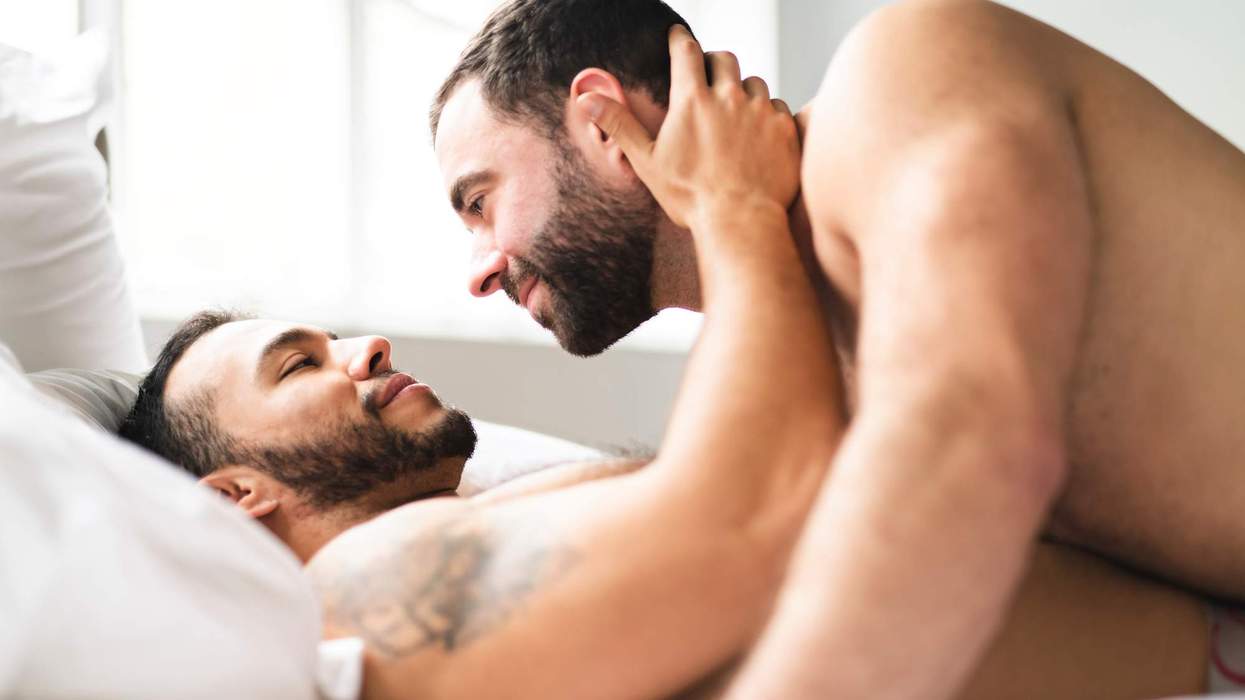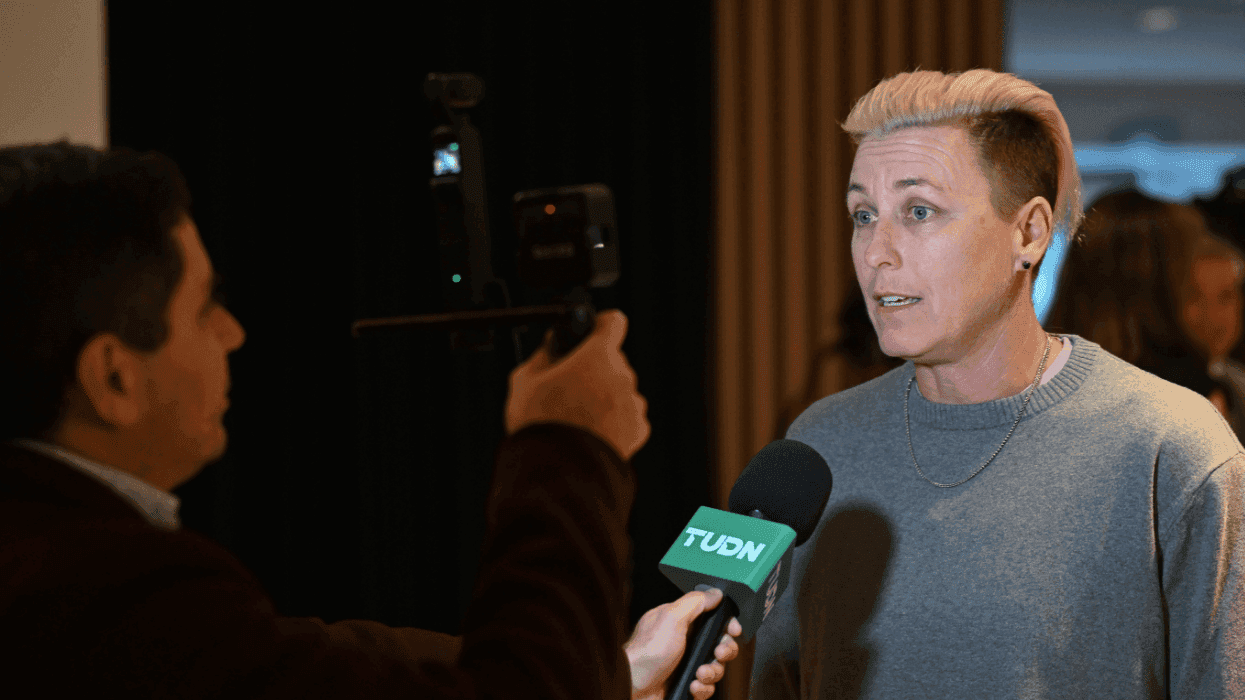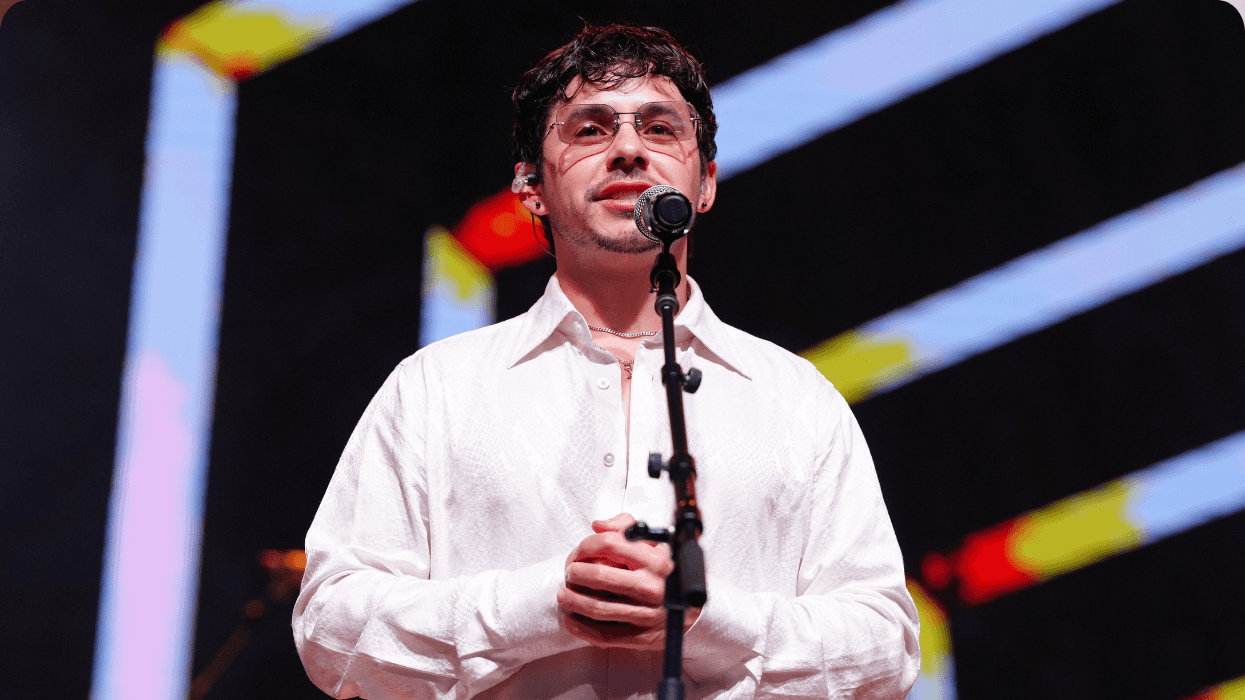The first time I walked into a gay bar, it was like I had jumped, Mary Poppins-style, into a sidewalk chalk tableau. For someone whose only reference to a gay bar was Queer as Folk, there was a sort of unreal mythology to the the gay bar. A space with other queer people where I could be my authentic self? Might as well have been Narnia. Part of the mythology that Queer as Folk espoused was the intergenerational gay relationship: the blonde twink -- desperate to feel gay in gay spaces and, of course, hooking up with older, experienced gay men. And then there was the debonaire bon vivant who enjoyed sex with anyone who would give it to him, even if they were barely legal.
I was reminded of this when I read about the case of Kevin Spacey, who pled not guilty to charges of sexual assault this week for shoving his hand down an 18-year-old busboy's pants at a Nantucket restaurant in 2016.
As someone with a fake ID who spent a lot of time in the sexually charged gay bars of Hell's Kitchen, I know I let more than one grope or grab slide unnoticed. I didn't want to cause a stink. As someone who was too young to be there, chunky, and not particularly well-dressed, the grabs felt less like a physical touch or a ritual hazing and more of a welcome wagon, as though I should be thankful to be a part of it.
In seeing Spacey's accuser come forward, I began to think about how many other people had experienced groping in a bar setting and excused it just because they felt that tactile discomfort came with the territory. Four decades separated Kevin Spacey from his accuser at the time of the alleged incident. While consensual intergenerational contact is more than common in the queer community, that doesn't mean the dynamic between younger and older gay men elsewhere isn't rife with unequal power dynamics. Ageism as a sword can cut both ways: older gay men often get automatically written off as "creepy" and are pushed out from the community as early as age 30. But, being older in general often comes with assets that amass someone of power, prestige, money, status, etc. Older white, gay men are still older white men, prone to all the toxic masculinity and entitlement that often comes along with the demographic.
Spacey's alleged assault didn't happen in a queer space; it happened in a restaurant. And surely, given Spacey's own social status, this is an extreme abuse of power that might not seem applicable to the quotidian gay bar grope. But while this unfortunate interaction did not happen in the context of a gay bar, it's no secret that this same scenario plays out nightly in these spaces. If toxic masculinity is key in this equation, there's also a communal element: namely, how often assault happens in gay bars and how often people allow it to slide. Part of the problem might be the very freedom these spaces seem to offer to be our authentic selves. That one is supposed to "feel free" from shame in these spaces might make another feel entitled to violate another person's space.
"For some folks, it's really just this sense of freedom, this ability to be who they want to be, to hold someone's hand," K Richardson, coordinator of campus engagement and prevention at the New York City Anti-Violence Project, told Out, "but also that level of freedom comes with the feeling that they have rights to other people's bodies. So boundaries are broken without other people's consent."
"I do think it's difficult for people to talk about and name as violence," Richardson said. Like my own brush with unwanted touching, some people often don't think of what they experience as assault. "We're not always talking about what safety looks like, we're not talking about safety planning, so it becomes harder for people to say, 'Oh this thing happened to me.'"
The problem then, is a compounding one: some people in queer spaces mistake the particular freedoms these locations offer with the freedom to violate consent, and those who have their consent violated might not even have the language to process what happened to them. Complicating it even further is that the function of queer spaces has evolved from one generation to the next. While our cultural dialogue around consent has grown, so has the bar scene. Instead of serving as refuges predicated on covertness, many gay bars are now just another business attracting a variety of clientele.
"A big part of being in the gay community used to be based around silence and discretion and not making anything explicit," Brodie Turner, the lead coordinator of Melbourne, Australia's Consent Festival, told Out. "For people who lived in a time where being vocal about being gay was impossible, consent was negotiated implicitly through body language, affirmations, through sound and muscles. Now we've opened that up into being more explicit where people make clear verbally and non-verbally."
As long as that consent is enthusiastic, different forms of consent are more robust than ever, but that doesn't mean queer people, older or younger, are always included in these conversations. Because there is basically zero sex education that includes queer people, we are often disinherited from conversations about consent. Thankfully, the #MeToo movement has given a new generation language around consent and lent the matter the sense of urgency it deserves. But one movement cannot necessarily undo all the structural violence done to queer people for being denied a proper way to think about their own bodies.
"Queer people have had consent [education] withheld from them at an early age," Turner said. Along with that lack of education, queer men often lack models of consent in the media. Turner has argued in Archer that the most famous films revolving around gay male relationships rarely, if ever, mention consent, and are often relationships in which consent is not legally possible due to one party's age.
"Very rarely is sex between LGBTQ+ people depicted as consensual, if at all, in mainstream content," Turner wrote. "I'm afraid even the argument for films like Call Me By Your Name can be brooked by the fact the sexual engagement depicted is statutory rape and assault."
Unfortunately, Turner said, "in the vacuum of education, that's what we have."
It's true that when I first entered queer spaces as a 19-year-old, I had almost none of the knowledge available to me to differentiate between what was inappropriate and what was not. I knew there were ways that I didn't want to be touched, sure. But I didn't fully understand bodily autonomy or how to demand it, as a consequence of the ambiguity that shrouds consent in our culture. But, a lack of understanding is not an excuse.
None of this -- the lack of consent education, generational difference or the general freedom of queer spaces -- excuses sexual assault. And it definitely doesn't excuse Spacey, whose case is compounded by the fact that he's an Oscar-winning megastar for whom the power differential was even greater due to his prestige, wealth, and status. But, Spacey's case does at least illuminate a larger issue that is relevant to everyone beyond the two sides of his legal battle. Young queer people are missing out on education about our bodies, who gets to touch them, and when. And regardless of our age, every queer person has to know something fundamental: We have boundaries, and older men need to hold themselves accountable to the toxic behaviors they (and we) have been cultured to adhere to, whether those behaviors are complicit, accidental, or in the case of Spacey, unambiguously wrong.
"We have the right to express consent when we want to and withdraw it if we feel that's the path for us," Turner said. "We have to acknowledge that we all have that right."






























